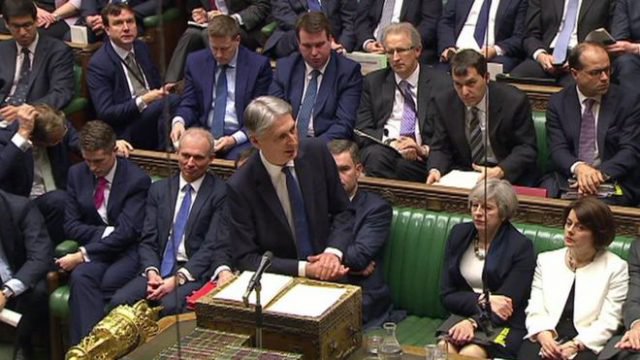Spring Budget was “Hardly Radical Stuff” – Industry Reacts
Yesterday’s Spring Budget, delivered by Chancellor Philip Hammond, was “hardly radical stuff”, according to a leading legal expert.
Lisa Evans, a commercial property solicitor at Kirwans law firm, has reacted to the low-key Spring Budget.
However, although the announcement itself was disappointing – especially for landlords, who were virtually left out – other changes were already planned, which mean that millions of people will be affected.

Spring Budget was “Hardly Radical Stuff” – Industry Reacts
So how could it affect you?
Tax rise for the self-employed
The main National Insurance contribution rate paid by self-employed people will rise in the next few years.
It will increase from its current level of 9% to 10% in April 2018, and then to 11% in April 2019 for those making a profit of more than £8,060.
The level for employees for these Class 4 contributions is 12%. The Chancellor said that this would raise £145m by 2021-22. On its own, the change announced in the Spring Budget would leave 2.84m people facing an average annual increase of £240.
As previously announced, Class 2 payments, which have a lower threshold of £5,965 or more in profits per year, will be abolished.
Reduction in tax breaks for shareholders
Director shareholders will see a tax break reduced on the dividends they receive. The tax-free dividend allowance, which only came into force a year ago, will be cut from £5,000 to £2,000 from April 2018.
Help for savers
A new Government-backed savings product was promised in November’s Autumn Statement, but no date or rate was set.
Now, the Chancellor has confirmed that National Savings and Investments will offer the Investment Guaranteed Growth Bonds from April, paying interest of 2.2%.
Evans reacts to the low-key Spring Budget: “This Budget is hardly radical stuff – rather another book-passing exercise.
“The £300m funds available to councils for discretional relief will, at least, give councils the power to make decisions over local businesses, but I do question how fair this will be. What one council might decide to award may be quite different to another, creating something of a postcode lottery of discretional relief. I’ll also be interested to know where the Government has found this £300m – it certainly wasn’t clear in Hammond’s speech.”
She adds: “It would seem rather than giving relief or overhauling the system, the Government’s approach is, yet again, somewhat wishy-washy. It’s almost as though they don’t want to actually tackle the issues, preferring to dip their toe in the water and then withdraw, leaving behind a half-hearted resolution and a promise to re-evaluate.”
Other property experts have also expressed their frustrations over the lack of housing initiatives in the Spring Budget: /industry-frustrated-lack-housing-initiatives-budget/







